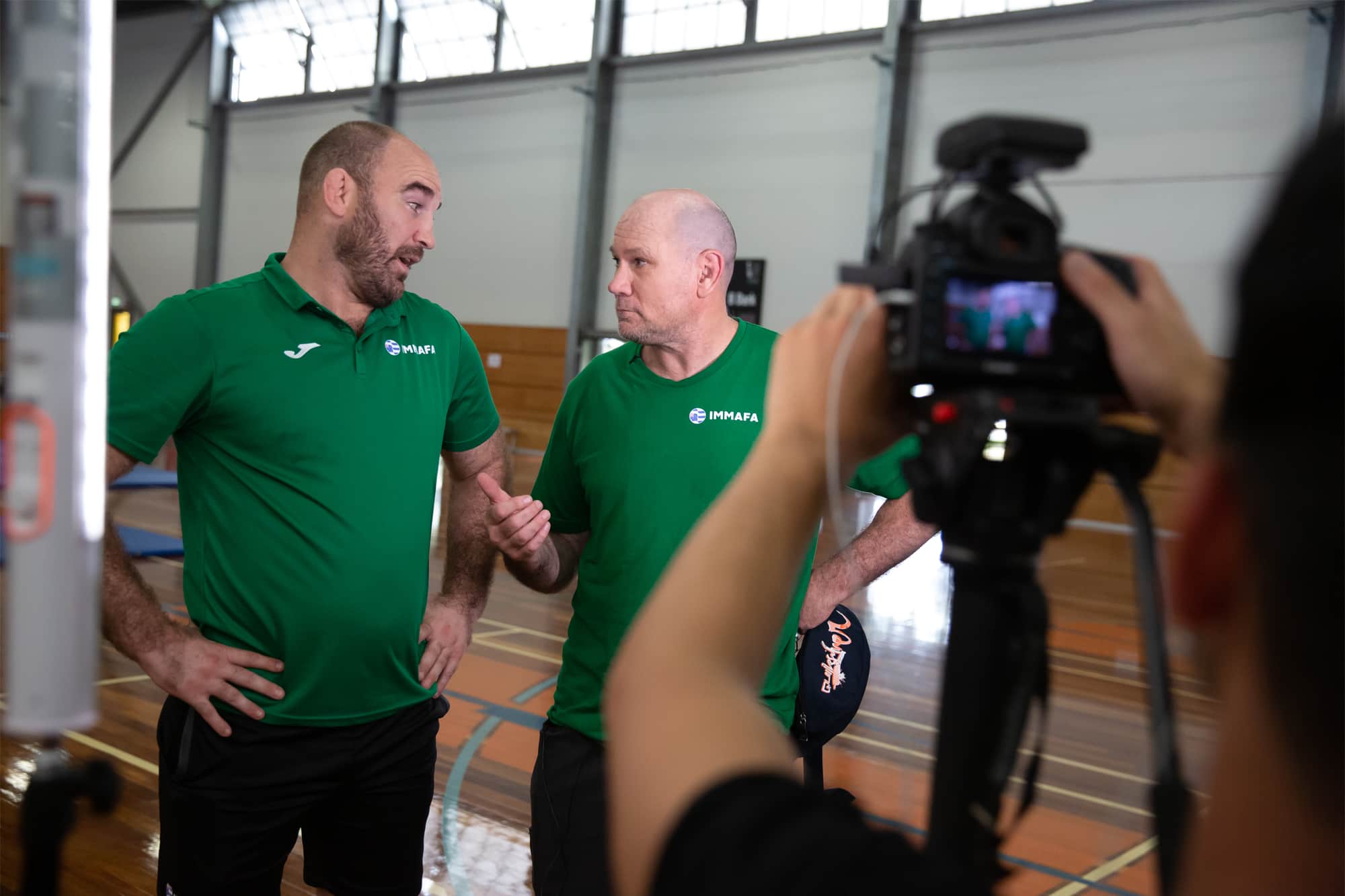By Caoilta de Barra
When IMMAF competition returns this summer it will be the first time that we see many athletes and coaches on the amateur MMA circuit. UFC veteran Brian Ebersole will be at the helm of the IMMAFA team for the first time on the international stage. Ebersole was named the head coach of the Australia team approximately a year ago, aligning his love for MMA and coaching.
Coaching was always a passion of the 71 fight pro, dating back to before his MMA days when he was still wrestling in high school. It was there he first got the taste of coaching, acting almost like an assistant coach while still in high school.
“Coaching was something I wanted to do, I went to college to become a high school teacher so I could be a wrestling coach and have summers off,” Ebersole began.
But the plan didn’t exactly play out the way he imagined back when he was a college student.
“That was the plan and I didn’t end up coaching and being a teacher per se but I have found a backdoor to coaching wrestling through Mixed Martial Arts. It was always on the cards for me being a coach. Being able to come to Australia and get involved with IMMAF is going to be interesting, I’m just getting started and am sort of taking over from my UFC cornerman Ed Bavelock who was the de facto national team coach for several years.”
The role came about in the last 18 months following Richie Cranny taking over as IMMAFA President and organising IMMAFA nationwide. Ebersole is hoping to spread the excitement and give an organised effort from Australia as a whole, treating IMMAF competition as the pinnacle of the sport.
Although it may be his debut outing as head coach, it will not be his first time experiencing an IMMAF event. Having volunteered and flying himself over to the 2019 IMMAF Oceania Open in New Zealand, Ebersole had a keen eye on getting involved from that point.
“Going over on that trip made it apparent that these are my type of people and have a cool vision and IMMAF worldwide was already doing good things too.”
Throughout his 71 pro fights, Ebersole fought in multiple weight divisions, countries along with facing competition from all over the world. The ability to test himself on the regional circuit and move upwards to international was unique because a win could answer so many questions for a fighter.
“If you win an international competition, you start to raise your ceiling and believe things that you wouldn’t have just before that.”
Recently, Ebersole received the honour of his IMMAF coaching blackbelt, having gone through the program, obtained through his work and experience in the sport as opposed to having to do multiple Kumite rounds. “As an IMMAF black belt I’ve qualified myself through the program.” He began.
“It hasn’t been that difficult for me in a sense because I was grandfathered through having competed in MMA at the highest level, so I didn’t do a 100 man kumite for a blackbelt, it was an honorary bestwoment upon me.”
The IMMAFA head coach endorses bringing a belt/ranking system into the sport. Thereby giving the sport some individuality as opposed to it being seen as a mashing of various individual disciplines into one. Something that he believes can be done through the work of IMMAF.
Ebersole has also been involved in the IMMAFA specialist coaching qualifications which are yet to be fully launched. The idea, created by Richie Cranny, is one that he endorses wholeheartedly and believes that it could be a success.
“Richie Cranny has come up with a great idea and that is two divisions; the stand-up and striking MMA which addresses the takedown but doesn’t get deep into the groundwork and then the grappling specialist for MMA which doesn’t get too deep into the striking and lets you focus on the grappler’s strengths and strategies for MMA.”
“I’ve helped Richie run a seminar on the course. The course itself is something he is still looking to roll out and as an IMMAF black belt I’ve qualified myself through the program. I think that the individual aspect of it is going to let coaches progress on a pathway from their specialisation and bringing it more in line with MMA”
The emergence of these courses may prove to be revolutionary in the way that the sport is taught. The idea of this training is focused on MMA as a whole and that no discipline is singled out, eliminating gyms from having specialities.
“Being able to recognize that stand-up and grappling strategy should still be taken in true a Mixed Martial Arts scenario. I think it’s a better entry for a student into MMA than to do a straight single BJJ class, for example. I think it will revolutionize the way gyms present their martial arts and specialities.
“I think it’s going to expand the martial arts and bring it back to what it used to be, which was just true means of self-defence, a more all-inclusive sport rather than all the fragmented sports we have now.”

